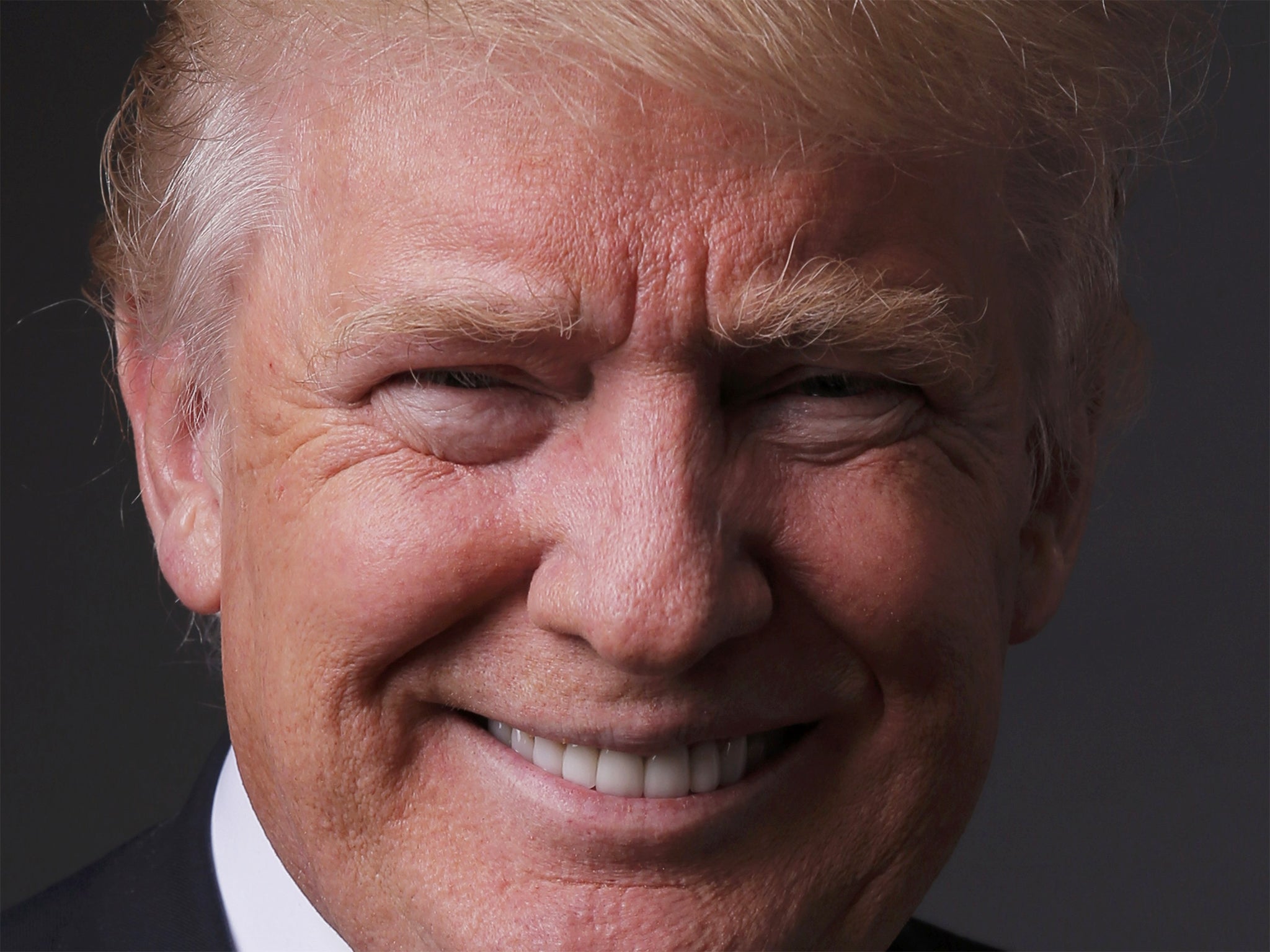The Independent's journalism is supported by our readers. When you purchase through links on our site, we may earn commission.
Donald Trump 'feels' like he's a billionaire. And under the rules of accountancy that's OK
A journalist noted that he had grossly inflated his wealth and was not actually “a billionaire many times over” as he claimed


What do Donald Trump and the National Health Service have in common? The answer is that they have both been accused of creative accounting. And on the face of it both look like they’ve been caught with their trousers around the metaphorical ankles.
Managers of NHS hospitals have been accused of plundering government funding earmarked for their capital expenditure and using it to meet their (spiralling) day-to-day spending. And Trump? The property developer and possible next President of the United States sued a journalist who said he had grossly inflated his wealth and was not actually “a billionaire many times over” as he claimed.
Under questioning from the journalist’s lawyers Trump revealed he relied on his own “feelings” to assess the value of his holdings. “My net worth fluctuates, and it goes up and down with markets and with attitudes and with feelings, even my own feelings….yes, even my own feelings as to where the world is, where the world is going, and that can change rapidly from day to day” Trump said.
Two open and shut examples of accounting skulduggery, if not fraud, then? Not necessarily. What the two cases reveal in rather different ways is just how inherently elastic accounting definitions can, quite legally, be.
Take the NHS. The money at issue was devoted by the Treasury and Parliament for NHS capital expenditure projects. What is this? Most people will think of capital expenditure and think of new hospital buildings, new computers and heavy-duty medical equipment like dialysis machines and CT scanners.
Yet what about the over-run on the building project that meant the hospital had to pay its security guards more over time than planned? Wasn’t that a cost related to the capital project’s delivery? What about the cost of the IT support to fix the new computer system when it broke down on the first day? What about the cost of training workers on how to use the new equipment?
There’s a legitimate debate about whether such items are capital or current spending. The divide between the two is a lot fuzzier in practice than it is in theory. And that’s the fuzziness that NHS managers have allegedly been exploiting to avoid running even larger deficits.
Trump’s valuation of his assets based on his own “feelings” sounds like it ought to be illegal. But consider this: what should the valuation be based on? Market values will seem like an obvious answer to many. But what if there is no market? Where assets are traded in liquid public forums it’s of course possible for an accountant to value a holding by simply looking at the market price. But this isn’t the case for many assets – particularly idiosyncratic holdings such as buildings or brands. Accountants therefore have to use their judgements.
It’s not a total free for all. There are international standards that accountants are required to adhere to. They are supposed to produce a “true and fair” view of a company’s affairs. But there remains considerable leeway. Reasonable people can disagree about “true and fair” valuations just as they can disagree about what constitutes capital and current NHS expenditure.
Indeed, one would not actually want companies to blindly use market judgements of the worth of assets to value their holdings. This would imply substituting the judgments of traders in financial markets – who may well be in the grip of an ignorant speculative frenzy – for their own informed view. “The preparation of accounts that reflect a true and fair view of corporate affairs is necessarily both a pragmatic and an eclectic activity” as the economist John Kay puts it.
Does this fuzziness provide an opportunity for corporate fraudsters? Certainly. But reality tends to bite in the end. Enron aggressively booked future projected streams of income from contracts as profit today. Before the financial crisis banks did something similar with the future expected revenues of various complex derivative contracts. But gravity imposed itself in the end in both cases – although not of course before a great many investors had lost money. But the point is that from a business point of view cash flow is what ultimately matters, not arbitrary valuations. If you can’t pay your bills, or secure a new line of credit, the game’s up.
That’s true of the NHS too. Raiding the capital budget today means fewer capital budgets will be affordable over the next four years. And that will ultimately impact on the quality of NHS care as much as spending less on doctors and nurses today. So-called “capital to revenue transfers” can only ever be a short-term fix. And done aggressively the tactic will end up imposing real costs.
As for Trump? Financial gravity has not imposed itself thus far on the “billionaire” so perhaps his judgement of his net worth was correct. The rather more important question, though, is whether political gravity will kick in before the year is out and spare the US and the world from discovering just how reasonable his “feelings” on a whole host of other things are.

Join our commenting forum
Join thought-provoking conversations, follow other Independent readers and see their replies